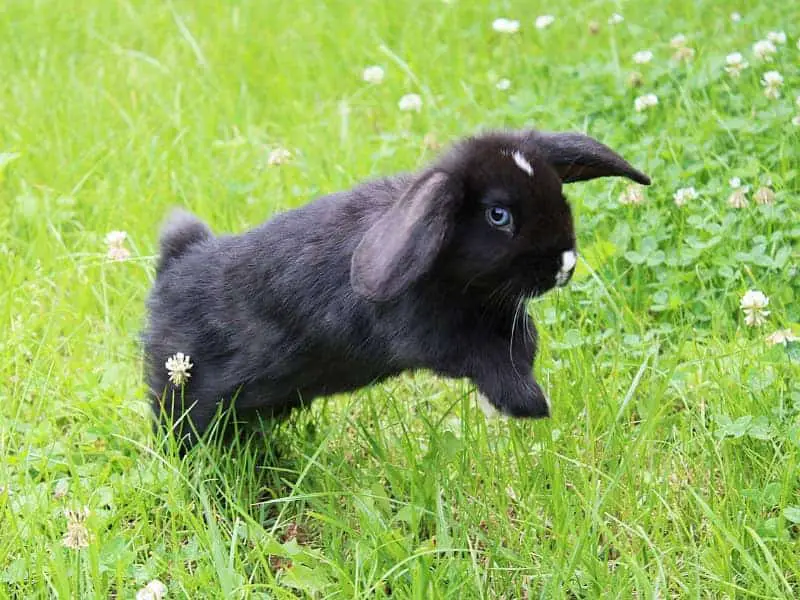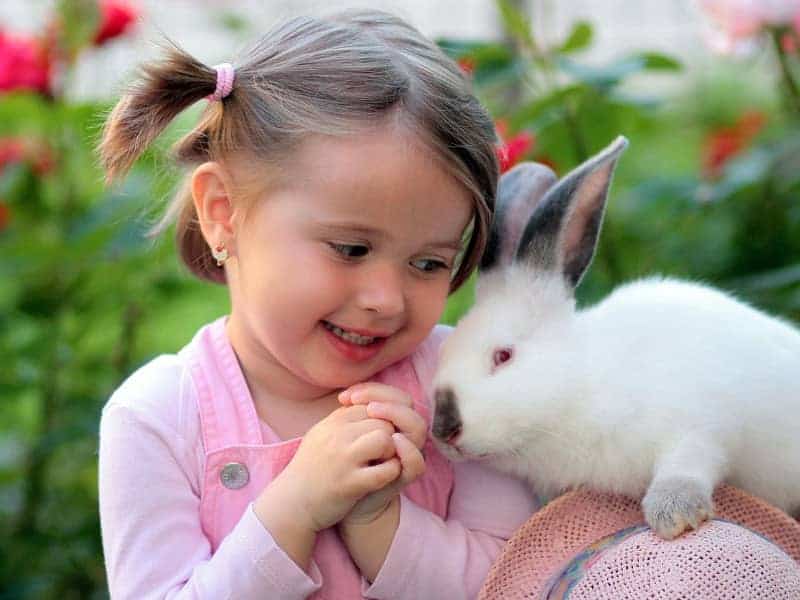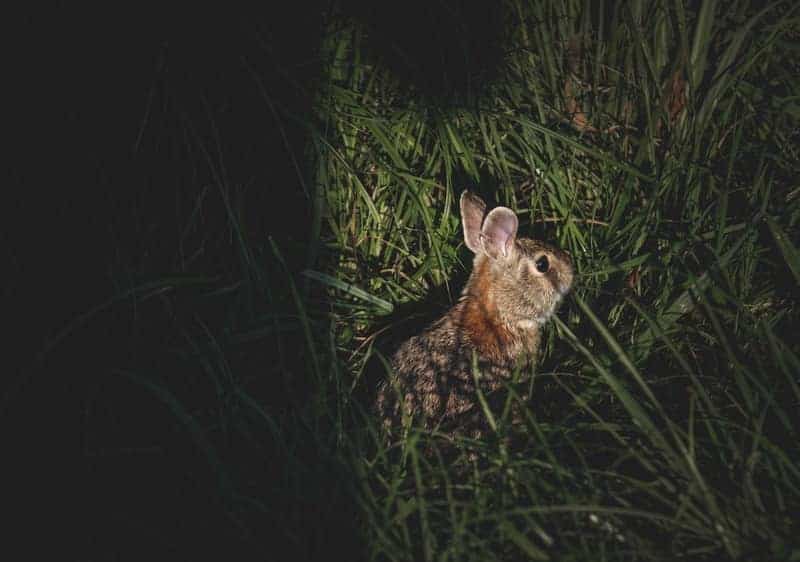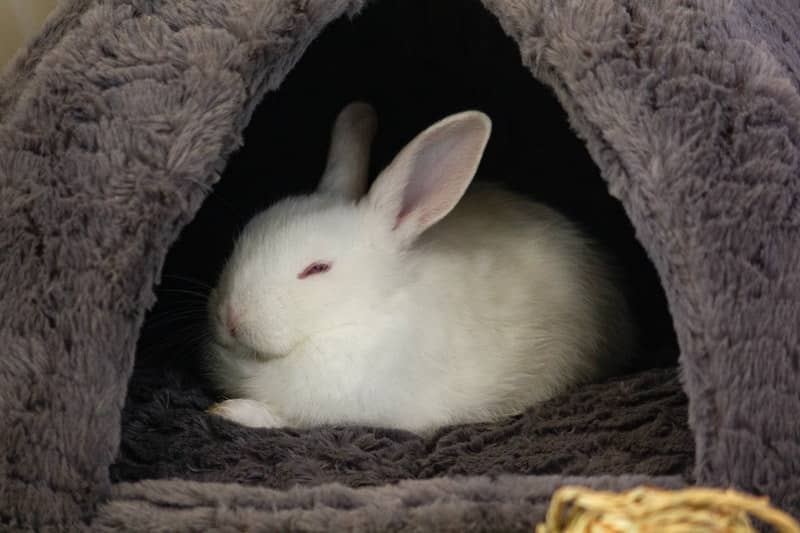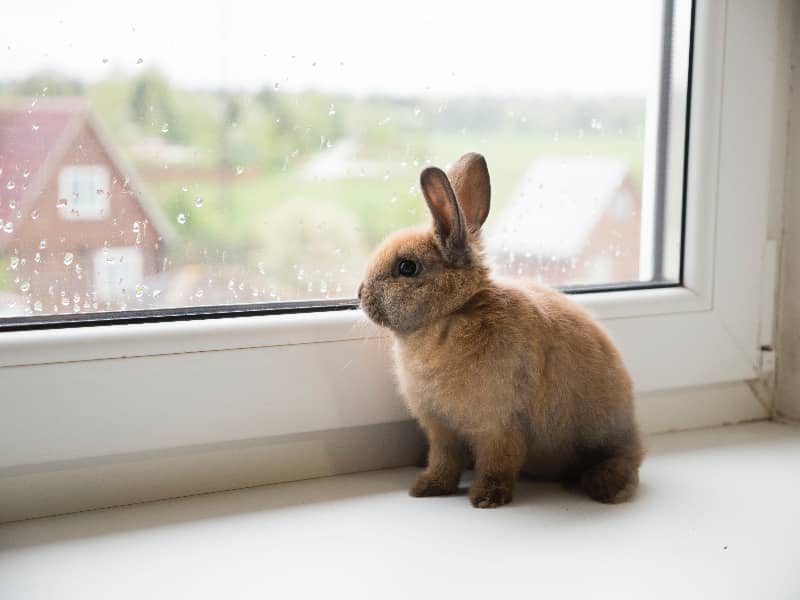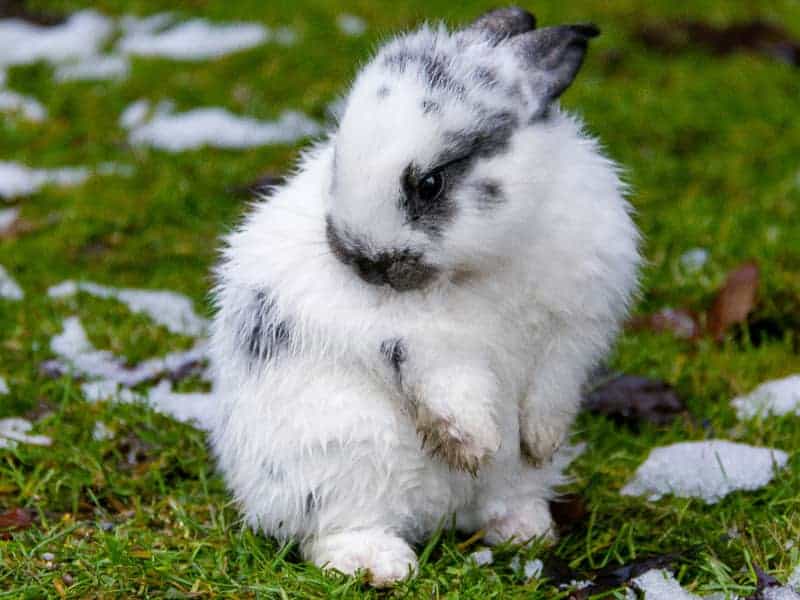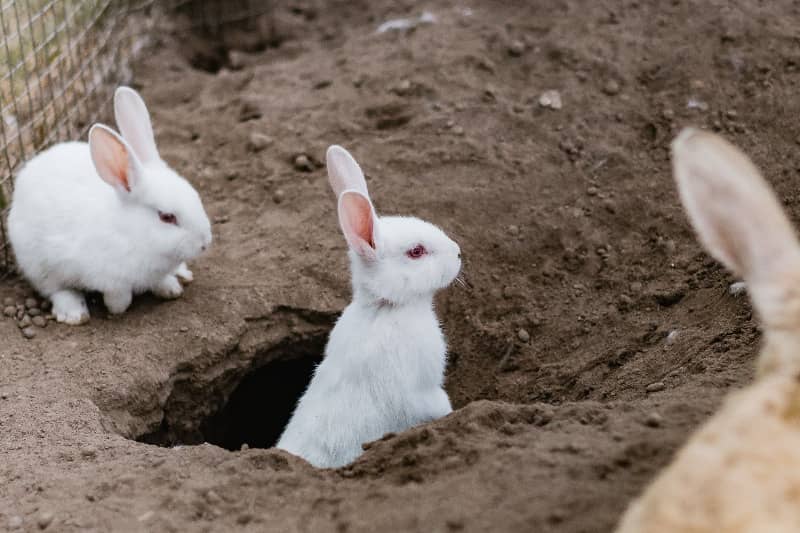
Rabbit hole in the garden, what to do?
It's spring, and while you're looking at your garden and enjoying the first rays of sunshine, you suddenly notice something: a small hole that wasn't there before. Upon closer inspection, you realize that it is a rabbit hole in the garden. This discovery can bring both joy and worry. But do not panic! Here we clarify the most important questions around the topic of rabbit hole in the garden.
What does a rabbit hole in the garden?
A rabbit burrow is an underground tunnel system dug by wild rabbits. Here they seek shelter from predators, raise their young and spend most of their time. Such a burrow may have several entrances and many tunnels. It can be both horizontal and vertical and is often extended.
If you find a rabbit hole in your yard, this indicates that wild rabbits are in the vicinity. This can be due to several reasons. Perhaps they find enough food in your garden or feel safe from predators.
Is a rabbit hole harmful to my garden?
One of the biggest concerns that garden owners have is the potential damage that a rabbit hole can cause. And yes, there are some things you should be aware of.
Rabbits like to eat a variety of plants. So if you have flower beds or a vegetable patch, there is a risk that they will be eaten. Furthermore, the tunnels they dig can change the structure of the soil. During heavy rains, these tunnels could collapse and cause holes or cracks in the garden.
How can I recognize the rabbit hole?
A rabbit hole is not always easy to spot, as it is often hidden. Typical signs are small, round holes in the ground. You will also often see loose soil around the entrance. Another way to detect the presence of rabbits is by their characteristic tracks: small, round footprints with four toes.
Often garden owners confuse rabbit burrows with those of other animals such as moles. While molehills are usually larger and above ground, rabbit burrows are flatter and less noticeable.
How can I keep rabbits out of my garden?
If you don't want rabbits to choose your yard as their home, there are some things you can do.
First, you should make sure that your yard is less attractive to them. This means cutting excess grass and making sure there is no easily accessible food source. A fence can also help keep rabbits out, but should be buried deep enough into the ground to prevent them from digging underneath.
You can also try letting natural predators like cats or dogs roam around your yard. Their smell can scare off rabbits.
Is it legal to destroy the rabbit hole?
In many countries, wild rabbits are protected and it is illegal to kill them or destroy their burrows. If you are thinking of doing something about the burrow, you should first check the local laws.
There are humane methods of driving rabbits away without hurting them. One way is to introduce predator scent. There are products that can mimic this odor and deter rabbits. Another option is to introduce noise, such as placing a radio near the burrow.
Can rabbit burrows have benefits for my garden?
In fact, rabbits can also have benefits for your garden. They eat many pests that might otherwise infest your plants. In addition, their droppings help fertilize the soil.
In addition, rabbits can also be a joy to watch. Their presence can enliven the garden and provide an exciting natural spectacle for children.
How can I peacefully coexist with the rabbits in my garden?
If you decide that you want to tolerate rabbits in your yard, there are several strategies to peacefully coexist with them. A harmonious coexistence is possible.
One of the first things you can do is make certain areas of your garden accessible to rabbits while protecting others. For example, you could line a certain area with plants that rabbits particularly like, to keep them away from other, more valuable plants.
In addition, you could grow hardy plants that are resistant to rabbits. There are many types of plants that rabbits usually do not eat. A gardener can help you choose the right plants for your garden.
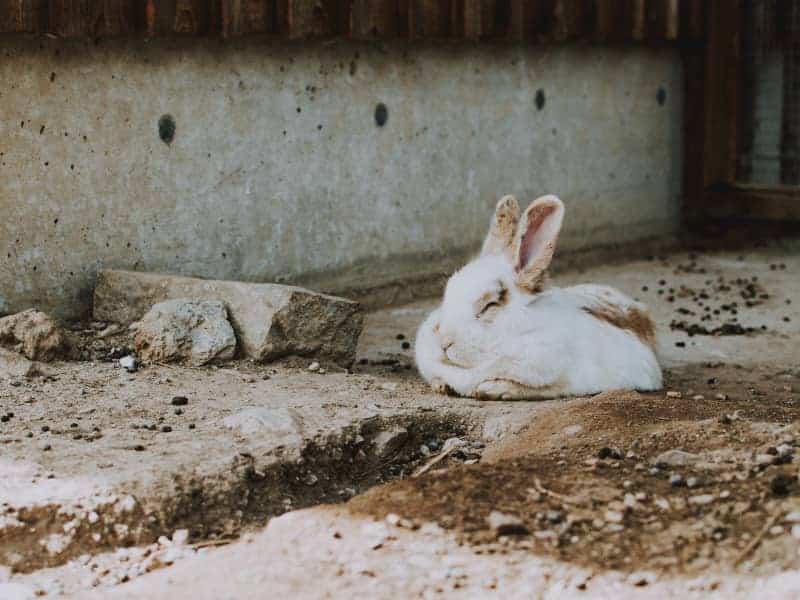
How dangerous are rabbits for humans and pets?
The good news is that wild rabbits are usually not dangerous to humans. They are rather shy animals and avoid contact with humans. If you come face to face with them, they will probably flee.
For pets, however, things can be a little different. Rabbits can carry diseases that could be harmful to pets, although the risk is relatively low. It is always a good idea to have pets checked regularly by a veterinarian and to make sure they are vaccinated.
Are there humane methods to remove rabbits?
If you decide to remove rabbits from your garden, there are humane ways to do it. One of the most effective methods is to use live traps. With these traps you can catch the rabbits and then release them in a suitable area.
It is important to make sure that the trap is big enough and does not cause any damage to the animal. You should also check the trap regularly to make sure that the trapped animal does not stay in it for too long.
If you decide to use this method, before releasing the rabbits, make sure that you move them far enough away from your house. Otherwise, they may simply return.
Can rabbit burrows affect the foundation of my house?
It's rare, but yes, rabbit burrows could potentially affect a home's foundation, especially if they are present in large numbers and the tunnel system becomes extensive. It is important to monitor the location and extent of rabbit burrows in relation to your home.
If you see signs of a rabbit burrow being dug close to your home or other structures, you should consider taking steps to prevent the burrowing or remove the rabbits. However, before you panic here, you should talk to people who have some knowledge of structural engineering in houses. To our knowledge, no house in Germany or Central Europe has ever become unstable because rabbits have dug or lived there.
Conclusion on the subject: rabbit hole in the garden, what to do?
Rabbit burrows in the garden can bring both joy and challenges. While their presence brings a natural and invigorating atmosphere to the garden, their activities can also cause damage to plants and structures. Deciding how to deal with these little visitors depends on the individual wants and needs of the garden owner.
There are numerous humane ways to coexist with rabbits or remove them from the garden if necessary. The key words are respect, understanding and adaptability. With the right knowledge and a balanced approach, both the garden owner and the rabbits can benefit from harmonious coexistence and make the garden a place of peace and coexistence.
Author

-
Garden animal - A life with nature
Welcome to my animal blog! My name is Dirk and I am happy to take you on my journey through the fascinating world of animals and gardening.
Born 54 years ago, I have had an insatiable curiosity for the animal world around me since childhood. Although I have moved professionally in other industries, my true passion has always been animals and nature. It is remarkable how a small garden has become such an important part of my life.
Many of my fondest memories are associated with the animals that share our home. Whether it's the curious squirrels that scurry across the trees in the morning, the colorful variety of birds that visit our feeders, or the busy bees and butterflies that pollinate our flowers, every moment with them is invaluable to me.
This blog is my contribution to share my experiences, discoveries and insights with like-minded people. Here I will share stories of unforgettable encounters with animals, give tips on gardening and creating wildlife-friendly habitats, and take you on my journeys through nature.
Thank you so much for being here!
Cordial,
Dirk aka garden animal
Last posts
- 27. February 2024PetsVeganes Hundefutter – Grün und Gesund?
- 18. January 2024ChickensOregano für Hühner
- November 27, 2023HamsterDiurnal hamsters
- November 24, 2023HamsterHamster hammock

